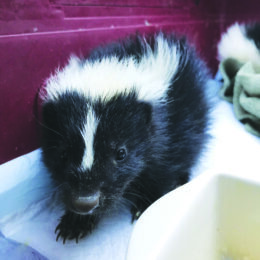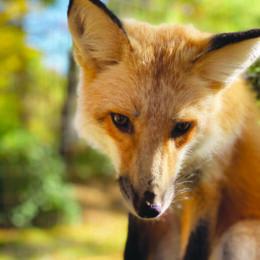Family fun for whenever
Earth Day at the Museum
• The Children’s Museum of New Hampshire (6 Washington St. in Dover; 742-2002, childrens-museum.org) will hold an Earth Day Celebration on Saturday, April 20, with sessions from 9 a.m. to noon and 1 to 4 p.m. The planned activities include Earth-friendly crafts, planting, a scavenger hunt and more. Reserve spots online for a session in advance; admission costs $12.50, $10.50 for seniors.
Art camp!
• The Currier Museum of Art’s (150 Ash St., Manchester) April Vacation Art Camp: Sailors and Sea Monsters runs Monday, April 22, through Friday, April 26, from 9:30 a.m. to 4 p.m. The Currier’s exhibit “Stories of the Sea” is the impetus behind this camp, which will include a variety of exciting multi-media art-making experiences, guided museum tours and gallery activities, according to their website. Three cohorts will be composed of kids ages 6 and 7, ages 8 to 10 and ages 11 to 14. An exhibition of their artwork will be held Thursday, April 25, at 3:45 p.m. Registration is $375 for non-members, $337.50 for members, with tuition discounts available, and all art materials will be provided, according to the website. Visit currier.org or call 518-4922.
Teddy bears!
• Manchester City Library (405 Pine St., Manchester) is hosting its annual Teddy Bear Picnic on Tuesday, April 23, at 11:30 a.m. Participants will gather with their teddy bears in the children’s room and then, when everyone is ready, parade through the library and out to the side lawn for a picnic, according to the website. Participants should bring their own bag lunch and beverage to enjoy at the picnic. At noon Mr. Aaron will be on the south lawn for a foot-stomping concert, according to the same site. Registration is not required. Call 624-6550, ext. 7628.
Experiment!
• Later that same day, Tuesday, April 23, from 3:30 to 4:30 p.m. Manchester City Library will host Elementary Experiments. This activity is for anyone in grades 1 through 6 and includes activities and crafts with a STEAM focus (Science, Technology, Engineering, Arts and Math). Participants can join in at the library or watch the video online; this week’s theme is food science. If you want to attend in person, register in advance so there are enough supplies. Elementary Experiments takes place in the Winchell Room. To register, visit manchester.lib.nh.us or call 624-6550, ext. 7628.
No small parts!
• Shakespeare for Youth, a nonprofit homeschool theater group that rehearses in Nashua and Milford, has four performances of A Midsummer Night’s Dream at the Amato Center (56 Mount Vernon St., Milford), on Friday, April 26, and Saturday, April 27, at 2 and 7 p.m. on both days, according to their website. This is the group’s third year of performing Shakespeare’s works with a cast made up of kids approximately ages 6 to 18 from all over New Hampshire and Massachusetts, according to a press release. Tickets online are $6 for individuals, $5 for seniors, and $25 for family tickets for parents and up to four kids. Call 399-9609 or visit bit.ly/sfytix.






